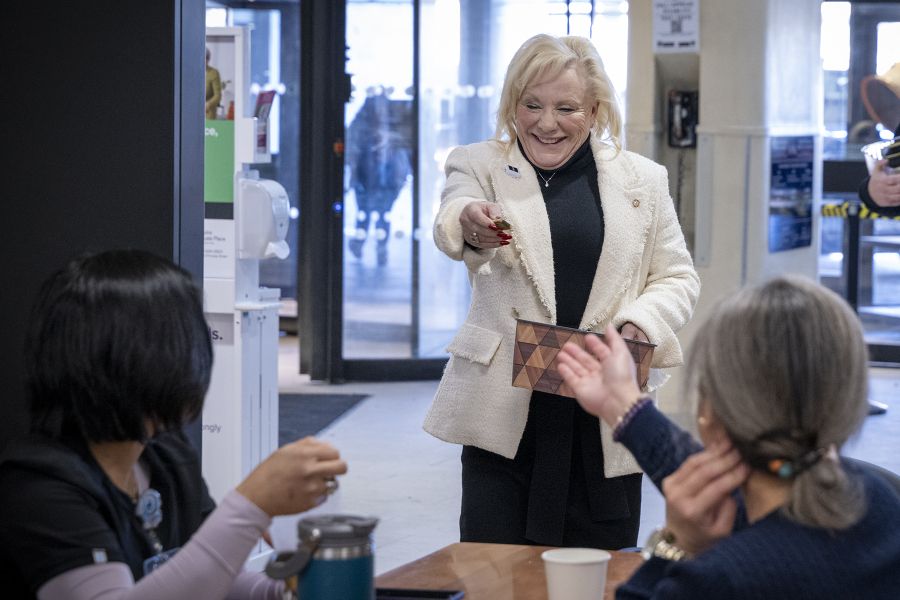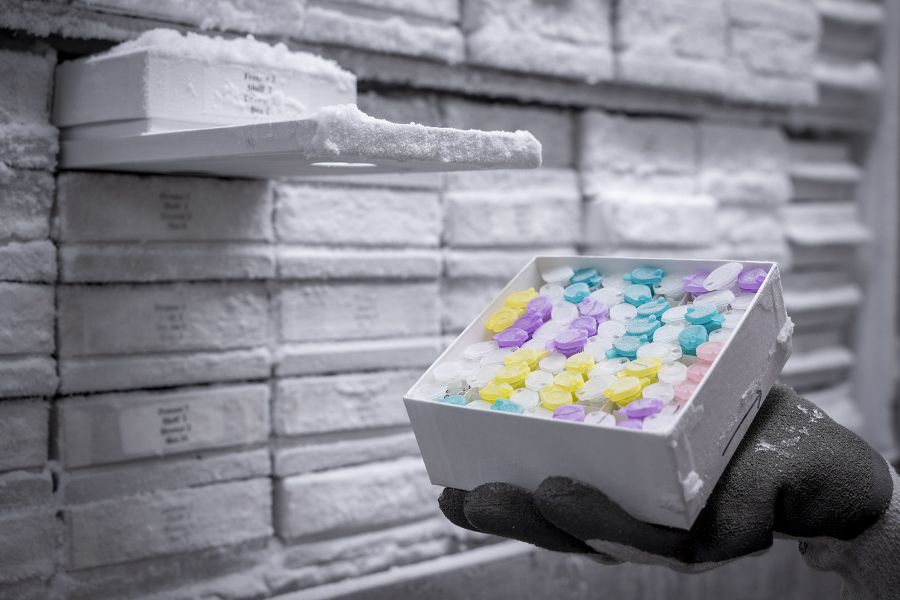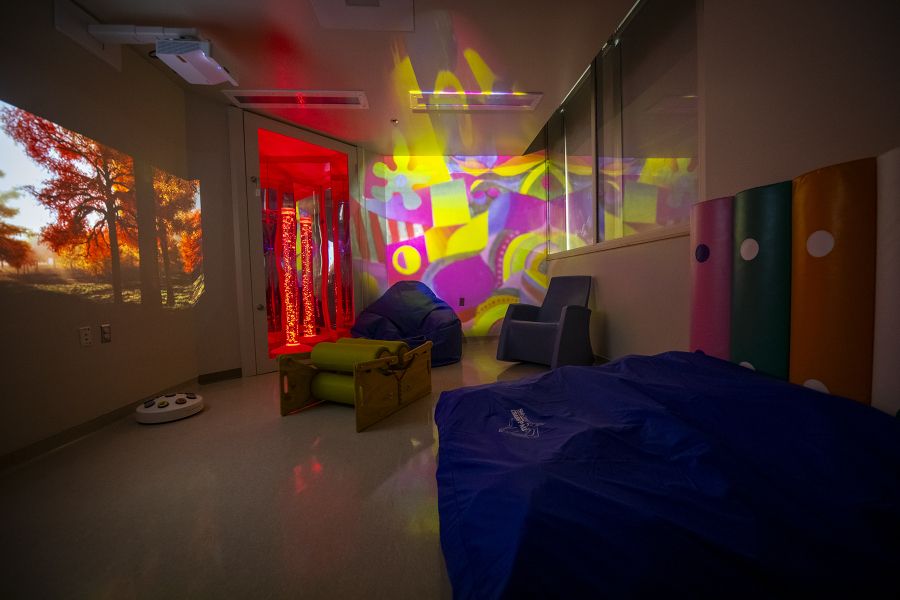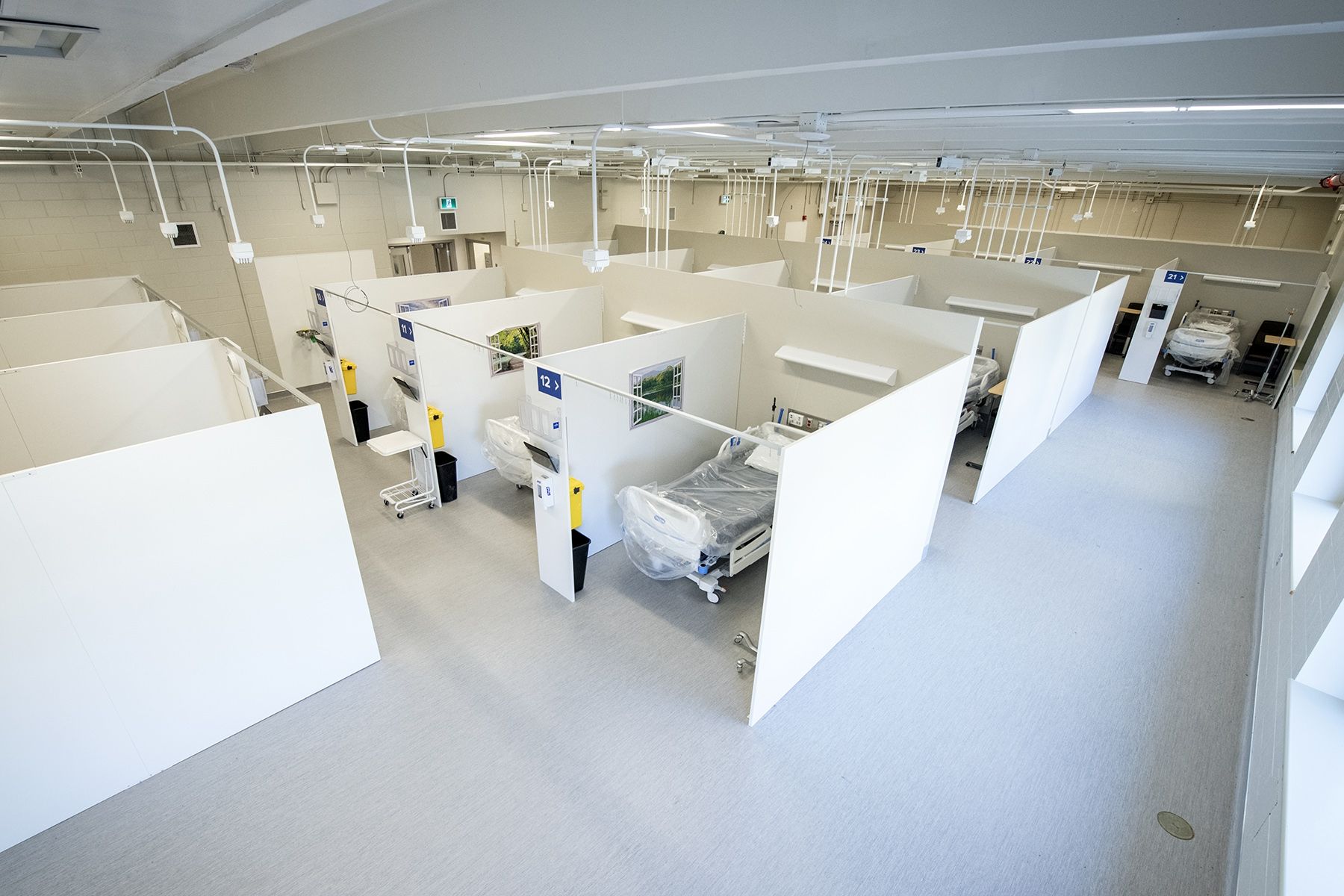
As COVID’s third-wave runs rampant in Ontario, Intensive Care Units (ICUs) across the province are bursting at the seams. Kingston Health Sciences Centre (KHSC) is stepping up to the plate to provide support by accepting critically ill COVID patients from other areas of the province, while increasing our critical care capacity, with support from the Provincial Government.
“We’re in a tough spot provincially...” says KHSC President and CEO Dr. David Pichora.
“We’re in a tough spot provincially as new data from the Province’s science table confirms that COVID cases are expected to continue to climb in the coming weeks, which will mean that ICU volumes will continue to grow as well,” says KHSC President and CEO Dr. David Pichora.
Prior to the pandemic KHSC’s maximum ICU capacity was approximately 65 beds. With careful planning and strategic investments from the Ministry of Health over the course of the past year, that number now sits at 95 beds, and we are now considering how we might further expand if necessary.
“Our peer hospitals in Toronto have weathered a substantial challenge for over a year. They are exceeding capacity and are working as hard as they can to get through each day. Because our region was not as affected in the first two waves of the pandemic, we’ve had more time to prepare for wave three and are in a good position to help” says Dr. Renate Ilse, Vice President of Patient Care.
As part of a ‘Team Ontario’ approach to treating critically ill COVID patients, hospitals across the province are working together to transfer patients from hospitals in COVID hot-spot areas, such as Scarborough, that are struggling with such high volumes of patients.
“Our three hospitals are experiencing tremendous pressures, and our health care teams are under exorbitant stress,” says Elizabeth Buller, President and CEO of the Scarborough Health Network. “We are deeply grateful to our hospital partners across the province who are stepping up in collaboration and solidarity to make sure that every possible effort is taken in the name of exceptional care for our patients and their families.”
Transferring patients across the province for care isn’t a new phenomenon. Often KHSC accepts patients from other regions for services such as Neonatal Intensive Care when spaces are not available in the patient’s home community. KHSC meanwhile transfers patients to larger centres such as Ottawa and Toronto for care when that care isn’t available in Kingston. However, the scale of transfers due to the pandemic is unprecedented.
Currently KHSC is caring for more than 50 patients in the ICU who require ventilator. More than 25 of those are critically ill COVID patients, with more expected to arrive via land and air ambulance in the coming days.
“The patients we are receiving are very sick people, most are ventilated and unable to breathe on their own. This isn’t an optional treatment for these patients, they will die without this care,” says Ilse. “This is a matter of what’s morally the right thing to do. Having more than 70 critical care patients is a shock to KHSC, but our teams are stepping up to do the best they can for patients in our region and across the province.”
However, aside from freeing up bed space and equipment for this surge of patients, the biggest issue remains having the staff to care for them. KHSC, along with all other hospitals in Ontario have ‘ramped down’ elective surgical procedures and less urgent care so that resources can be focused elsewhere.
“Staffing remains a major concern. We’re redeploying staff from across the organization to support this surge of patients. I want to thank every single department here at KHSC. I know everyone is doing everything they can to help pull this weight.” says Ilse. “I do want to stress that we’re monitoring our capacity carefully to ensure that we remain able to provide the emergent and essential care that people in our region will require. Do not hesitate to call 9-1-1 or come to our emergency department or urgent care centre if you need it.”
Meanwhile, KHSC’s field hospital at the former St. Mary’s of the Lake hospital remains ready to be operationalized in the coming weeks. However, that site is not equipped to care for critically ill patients and would only be opened for patients who require a lower-level of care once all the other hospitals in our region are at full capacity.
“The priority is to keep delivering care in hospitals,” says Ilse. “We’ve opened up new inpatient beds at our Hotel Dieu Hospital site to create space and we are working closely with our partners at Providence Care Hospital as well as hospitals in Brockville, Belleville, Nappanee, Perth-Smiths Falls and elsewhere in the region to transfer appropriate patients in order to free up capacity for KHSC to provide complex, acute and critical care. We are deeply thankful for this support.”
While teams work to free up that space, critical care teams are working as hard as they can to provide care in trying circumstances.
“The last two weeks have been an eye opener for us, especially last week when we expanded outside the walls of our ICUs,” says Reg Hart, KHSC’s Director of Critical Care. “It’s been really challenging for our staff, but the team’s morale has been good. We also recognize we’re going to have a few difficult weeks ahead of us.”
“Because of the great efforts of our regional public health units and responsible behavior of people in our communities, we’re in a good position to respond to the needs of the province,” says Dr. Pichora. “We have to stay the course because we are in for a few more tough weeks. We know you are all tired and stressed, but we are asking everyone in the hospital to continue to follow our infection control protocols. And we are asking our entire community for help. Please follow all public health protocols, stay at home if you’re able. Wear a mask and avoid gatherings of people, book your appointment for the vaccine when it’s your turn. We need everyone’s support to navigate this difficult time.”
Gallery
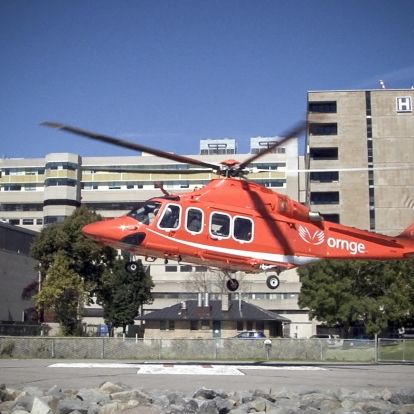
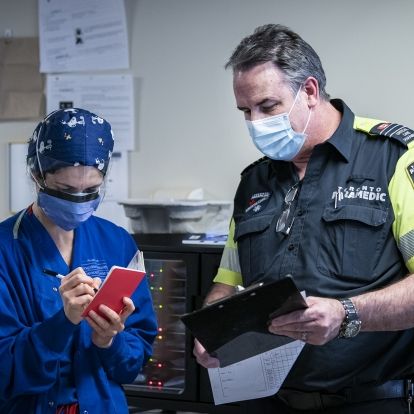
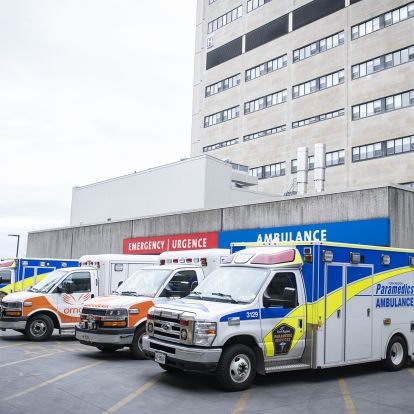
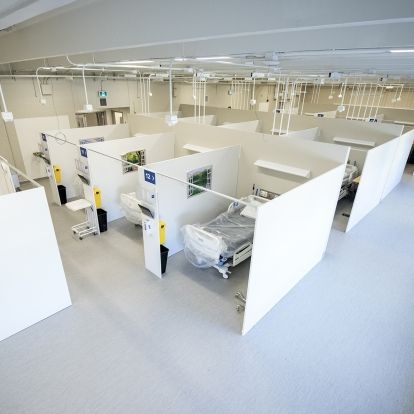
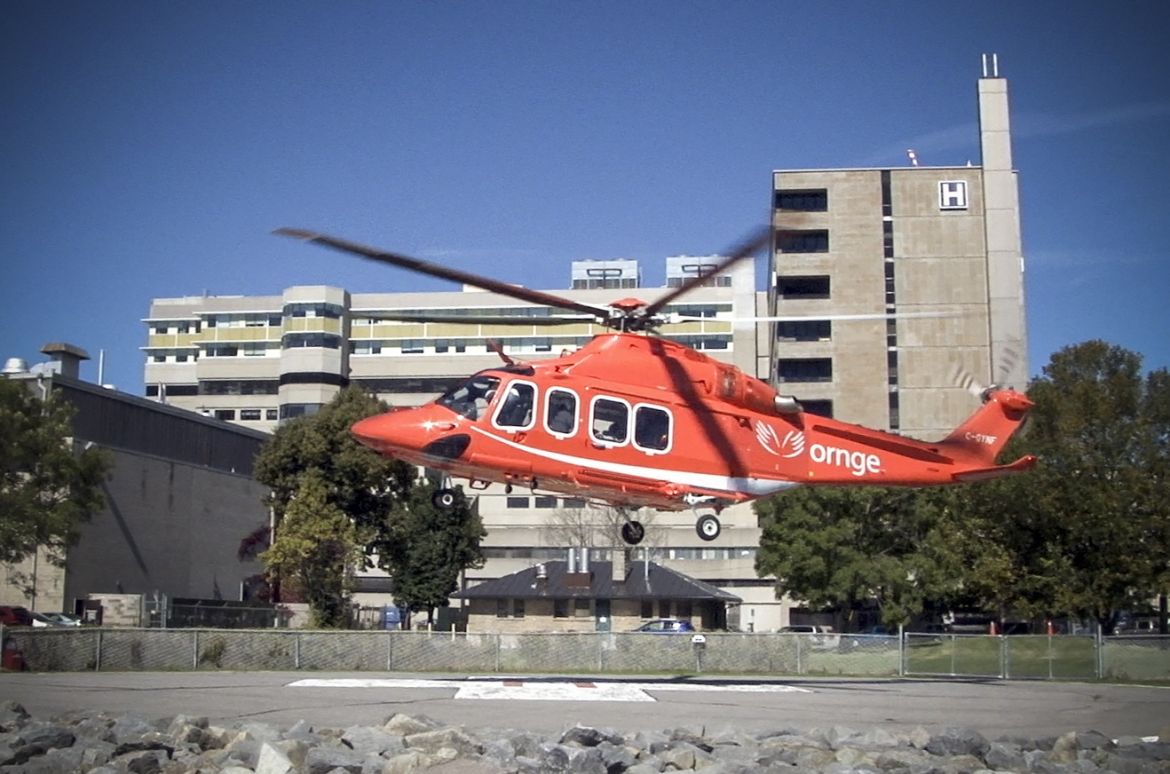
An Ornge air ambulance landing at the KGH site helipad.
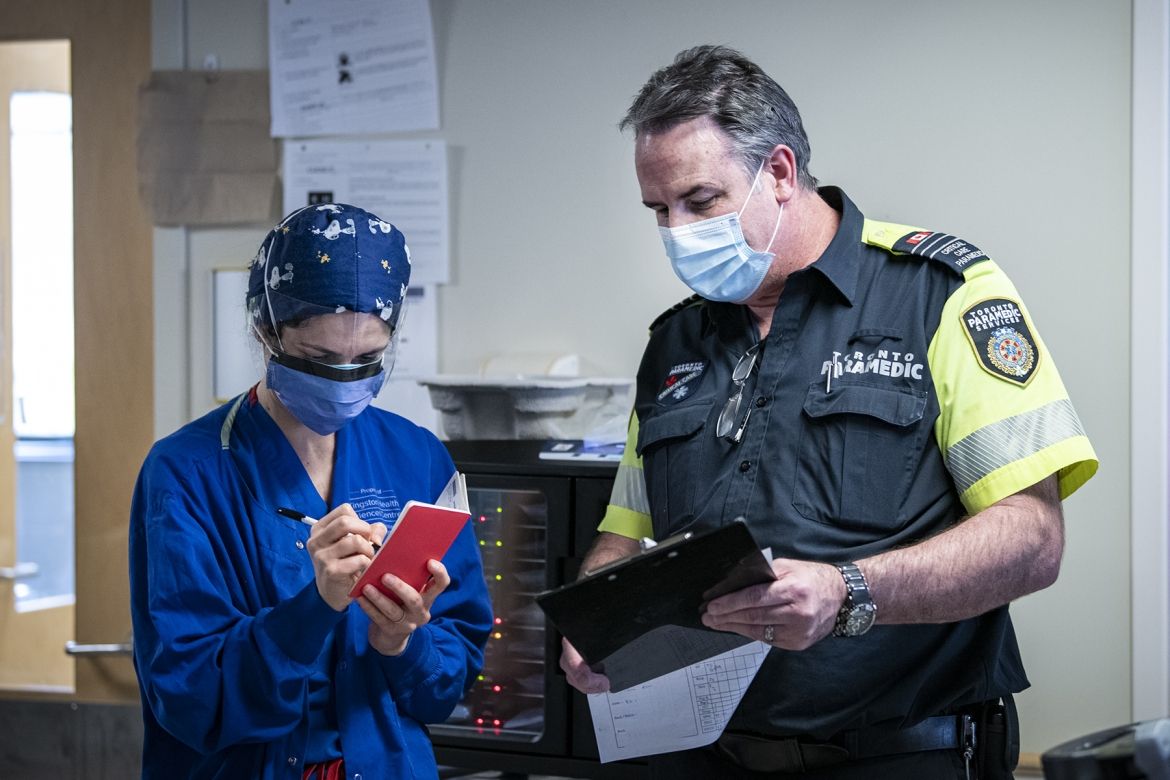
KHSC staff work with paramedics from the Toronto Paramedic Service to transfer care of critically ill patients.
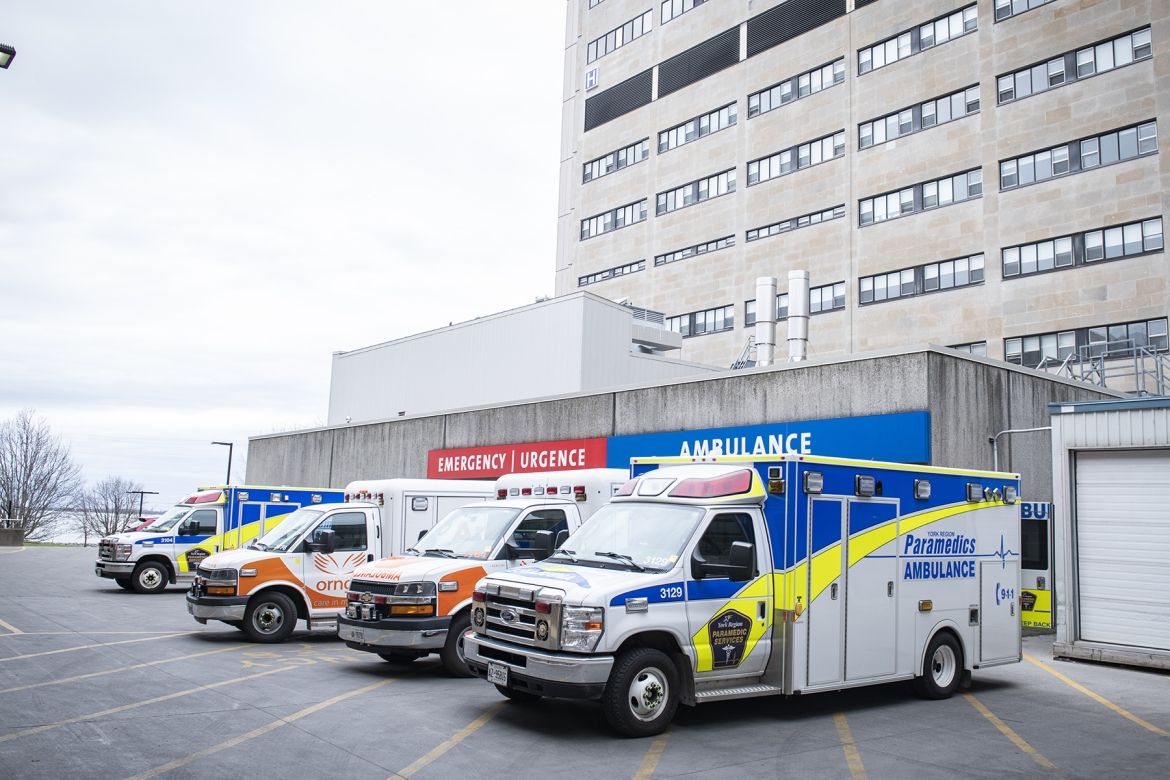
A number of out of region ambulance units are parked on the off-load ramp at the KGH site Emergency Department.
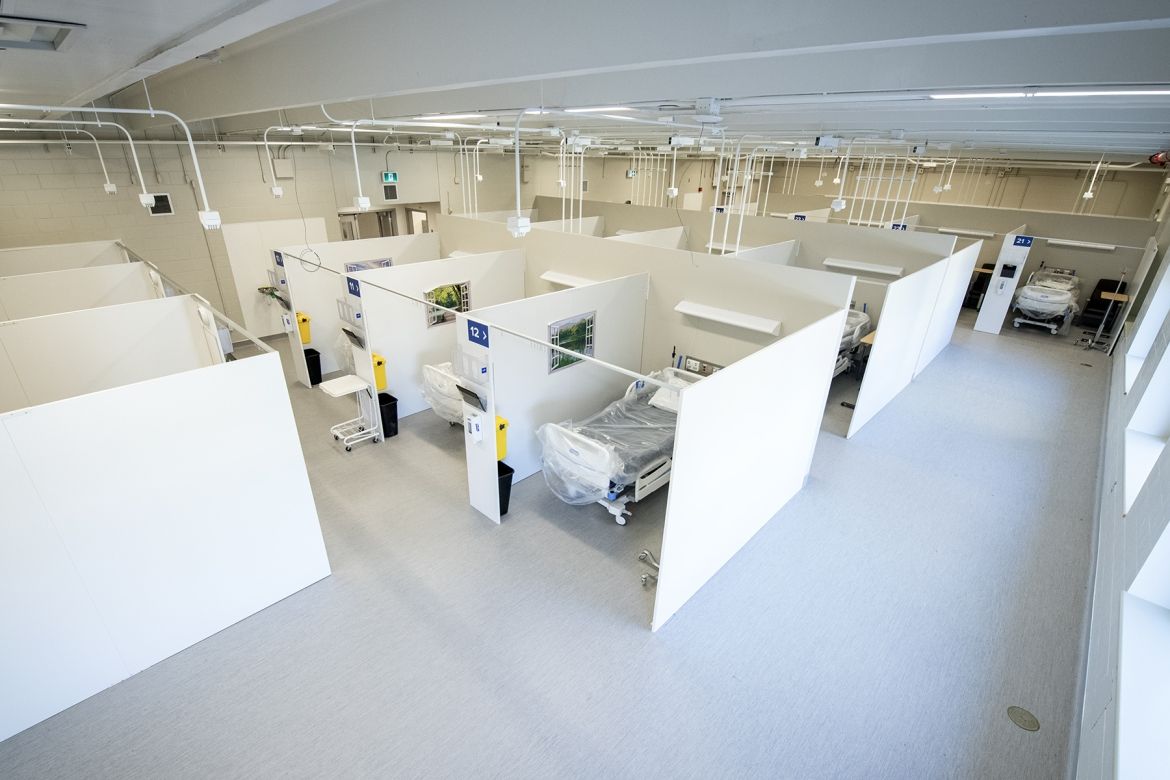
A view from inside the Union Street site alternative care facility setup by KHSC.

